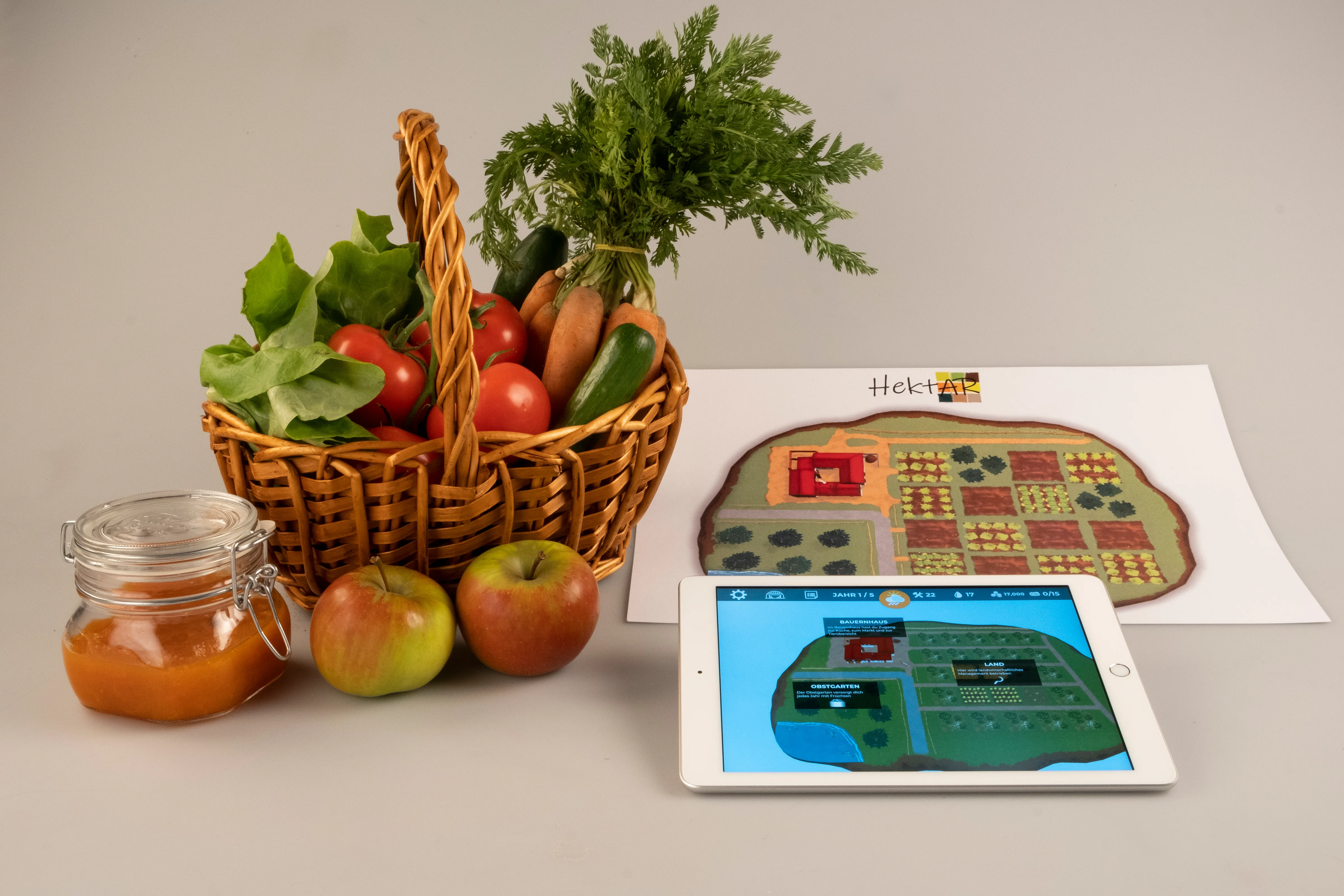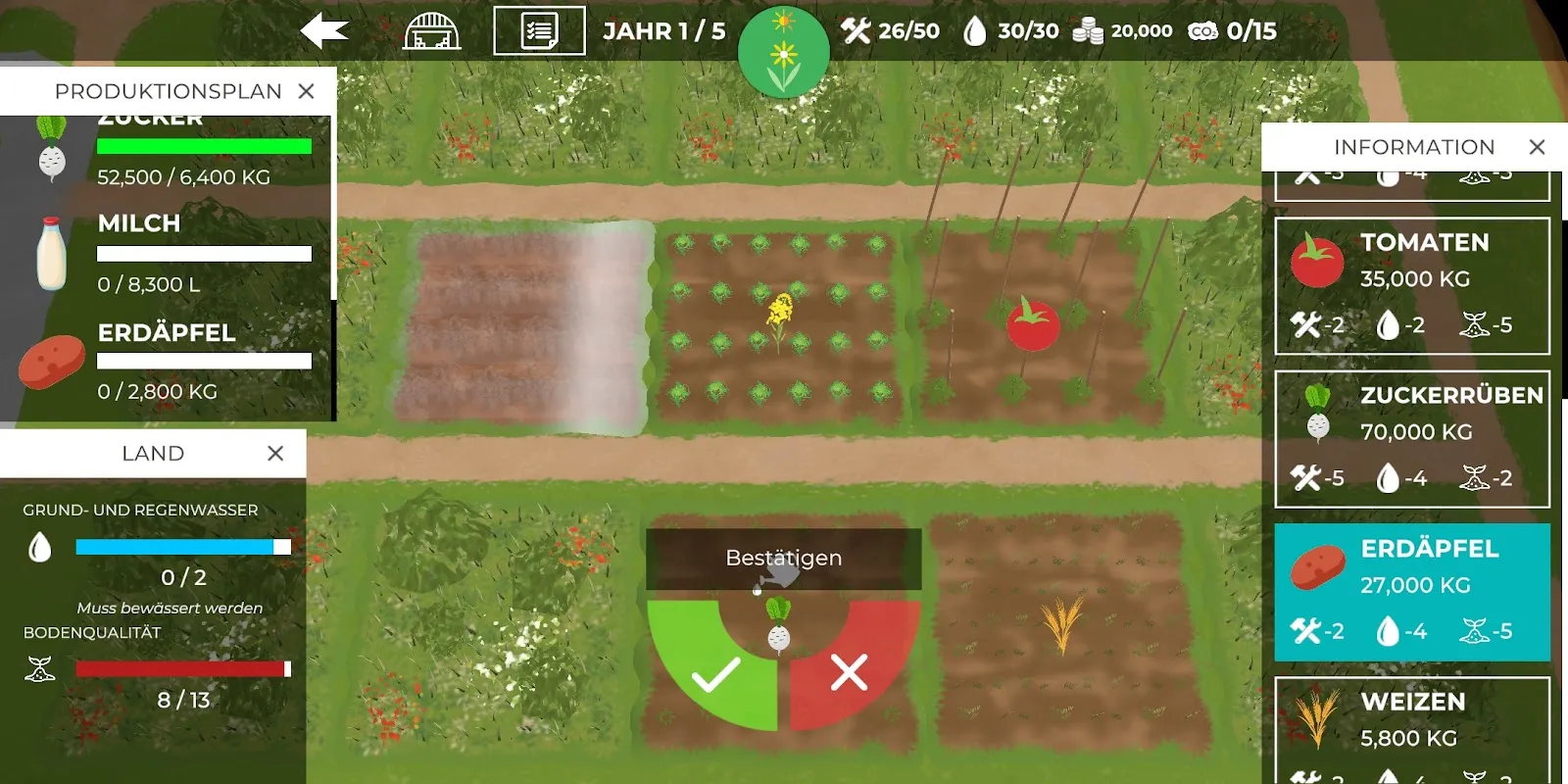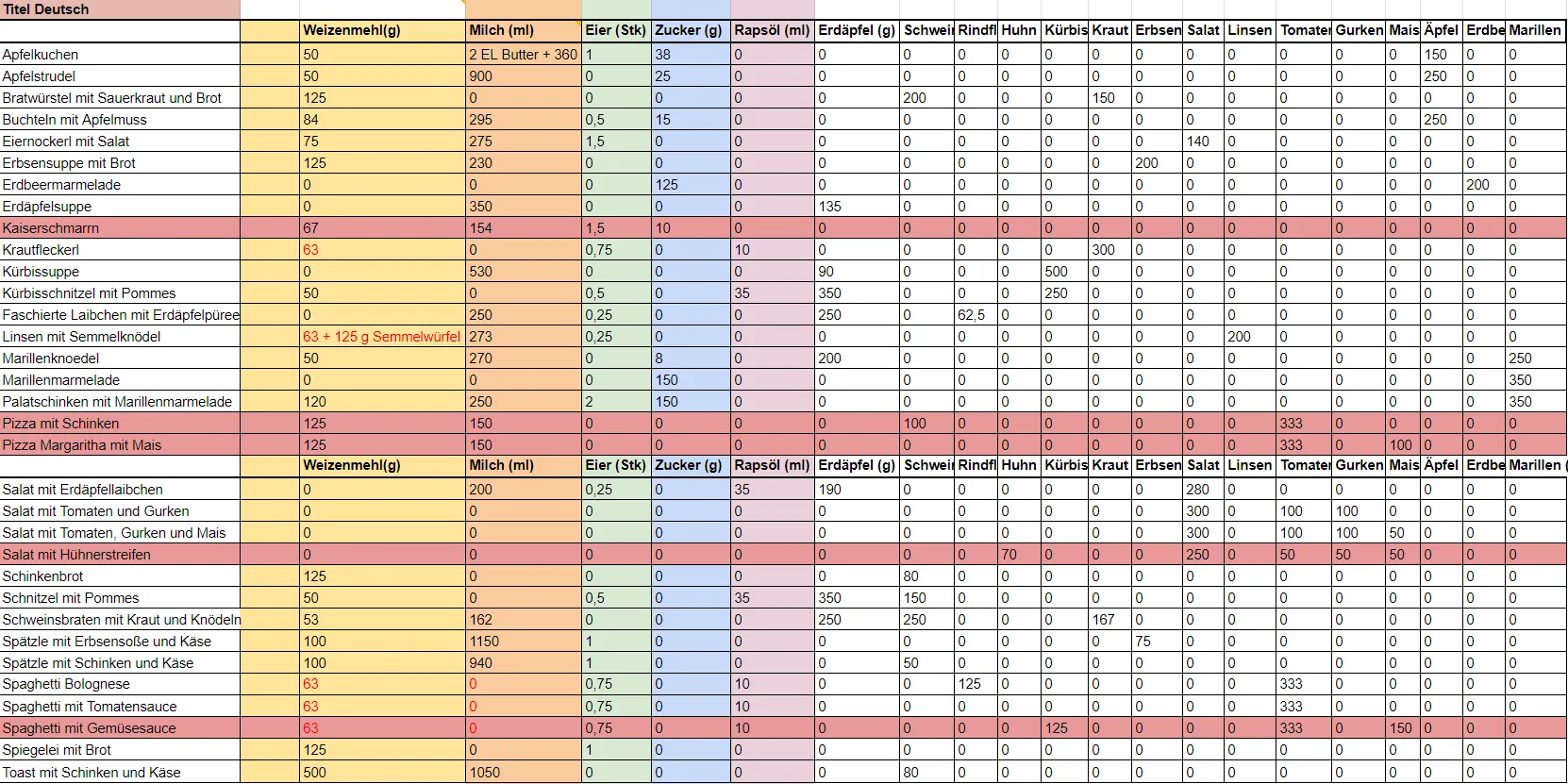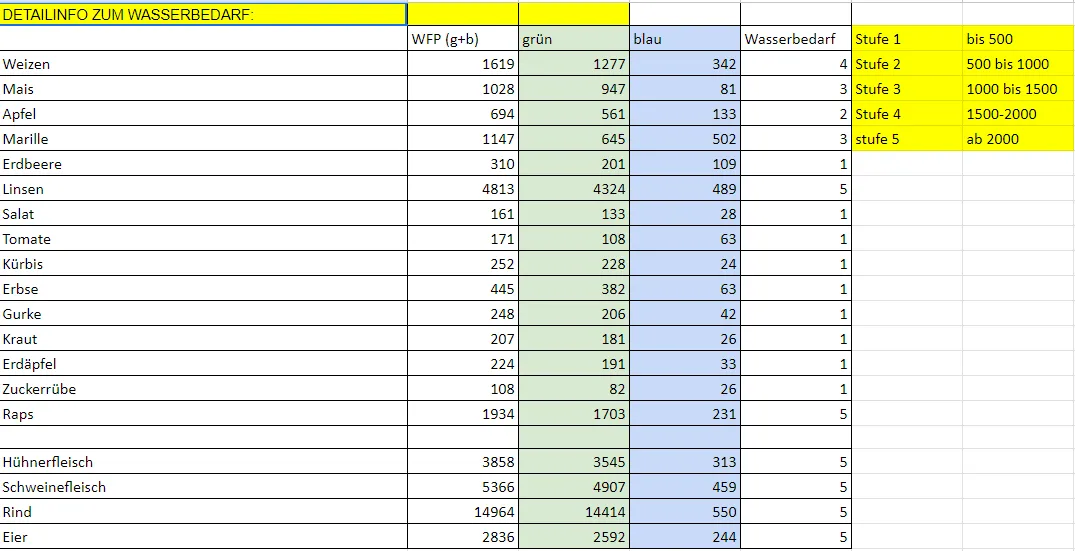Introduction

During my time at Playful Interactive Environments, a research lab at the University of Applied Sciences Upper Austria, I worked on a variety of game projects with an educational purpose. In the case of HektAR, I was responsible for the concept, development, and publishing and was supported by a 3D artist, who took care of visuals, and a team of environmental experts, who provided a lot of the data and content for the game. Creating the entire game took around 1200 hours.
Overview

In HektAR, players take control of a small virtual farm to meet the needs of a growing community as sustainably as possible. Resources such as land, water and labor can be used to grow various crops as well as to buy and care for animals. The game deals with topics related to food production as well as weather events caused by climate change. Players learn about the demand for agricultural products, the relationship to climate, seasonality, soil degradation, water consumption, and the needs of animals. At the same time, as production increases, various phenomena related to climate change slowly begin to affect the environment. These phenomena include droughts and increased rainfall, which can affect the soil and water supply, as well as pests and diseases that can inhibit crop growth. These events force players to make tough choices that may influence their ability to provide for their community and/or contribute to further climate change events.
HektAR does not aim to compete with farm simulations such as the Farming Simulator, but tries to simplify the complexity of agricultural processes for a shorter play time. HektAR is also not a pure micromanagement game like Farmville, but facilitates thinking and decision-making processes regarding nutrition and production in order to present important real-world relationships in a playful way. With HektAR, one learns more about the individual ingredients of different meals and what they require in terms of production, but also about the challenges associated with limited resources and significant weather and climate events. HektAR is intended to be used in schools and museums to teach younger audiences about what choices they can make to help combat climate change by reducing waste and supporting sustainable agriculture.
Gameplay
The game is played over several years (rounds) and consists of individual steps (phases). Each year consists of three main phases: Annual Planning, Production, and Annual Review. Upon completion, the game moves on to the next year.
At the beginning of a game round, three meals are selected from a selection of typical Austrian dishes as representative of an entire year. Based on this selection, a production list is created with the main ingredients and the total quantities for one year for a small community (e.g. 50 people). If these production goals are met and the community is provided with enough portions, the community will grow and more orders will be received, allowing production to be expanded the next year. However, since the soil, water, and other resources are consumed in production, the goal remains to operate as sustainably as possible.
The production phase consists of four seasons in which players plant and harvest crops, manage an orchard, and buy and manage livestock. Depending on how many servings have to be produced, certain man-hours are provided, which are used for most operations in the game. At the same time, players must manage water consumption for plants and animals. Soil quality is also an important variable to consider during gameplay, and if managed incorrectly, some of the available soil may become unusable for a period of time. Weather events and pests affect the yield, water supply and soil quality and become more serious every year.
The performance of a game round is evaluated at the end of the year. A graphic provides an overview of the meals prepared during the year, the respective number of community members, and the state of water use, soil quality, etc. Depending on how you played, certain achievements are unlocked. Achievements can be positive or negative and cause players to gain or lose community members. The number of community members is important because it unlocks new improvements that players can buy with generated profit.
Data
One of the main challenges we faced in the project was designing a simulation based on real data. Given the complexity of agriculture and the multitude of factors influencing crop yields, it was impossible to achieve a 100% accurate representation of reality. Since our target audience was school students, we needed to keep the complexity low and present information in a clear and understandable manner.
Our primary goal was to showcase the relationships between resources using real data as a basis, while acknowledging that certain shortcuts were necessary to create a playable simulation. Our environmental advisors and partners conducted extensive research on the topic, providing us with estimates on crop yield and water consumption. With this data, we were able to calculate how much the player needed to produce to sustain their community with meals for an entire year. To ensure player comprehension, we simplified certain numbers, such as water requirements.
Below is a glimpse of the data we collected and utilized in the game’s logic.
Summary
HektAR was an exciting project to work on and I’m happy we managed to publish the game on the app stores. Designing the simulation posed an exciting challenge as we aimed to integrate real data and portray intricate relationships, all while maintaining a balanced experience that offered intriguing strategic choices to the players. Farming games, like HektAR, present a unique opportunity to harness real data and introduce players to fascinating real-world problems, all within an entertaining gaming experience. In the future, I aim to work on more projects like HektAR and explore innovative ways to better represent reality in games, leveraging them as educational tools while igniting a genuine excitement for the world around us.
Disclaimer: The content of the game was developed specifically for an Austrian audience. The English translation has been done by a machine learning algorithm and might contain mistakes or irregularities. The game was initially developed for mobile devices and ported for the PC.
Project partners are Climate Alliance Austria, the Austrian Museum of Society and Economy and the Upper Austria University of Applied Sciences (Playful Interactive Environments research group). The EAT Toolbox was funded by the Federal Ministry of Agriculture, Regions and Tourism and the European Union as part of the Austrian Rural Development Program 2014-2020.


